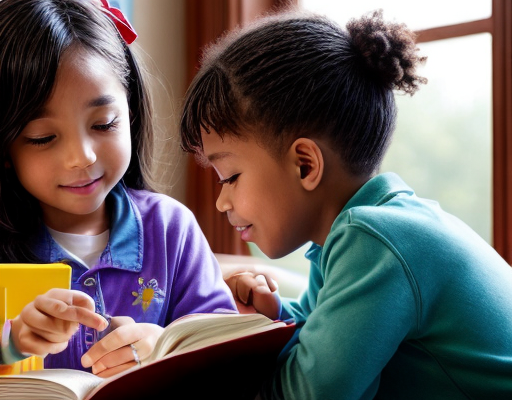
Sculpting the Future: Advanced Strategies for Fostering Your Child’s Intellectual and Emotional Growth
Sculpting the Future: Advanced Strategies for Fostering Your Child’s Intellectual and Emotional Growth
Parenting is an art, and like any other form of art, it requires knowledge, skill, and creativity to master. The development of a child’s intellectual and emotional faculties is paramount in preparing them to face an ever-evolving world. This article delves into the strategies parents can adopt to nurture their children’s growth in these critical areas.
Understanding Child Development Stages
Before implementing any strategies, it’s essential to understand the various development stages that children go through. From infancy to adolescence, each stage has unique intellectual and emotional needs. Recognizing these developmental milestones provides a framework for appropriate approaches to foster growth.
Creating a Stimulating Environment
The home environment plays a significant role in a child’s growth. Surrounding them with intellectual stimuli such as books, puzzles, and constructive games can jumpstart early cognitive development. Parents should aim to create spaces that are conducive to exploration and learning.
Encouraging Curiosity and Questions
Children are naturally curious, and their questions are a gateway to learning. Parents should encourage this inquisitiveness and never dismiss any question as trivial. Each query is an opportunity to teach and instill a love for knowledge.
The Role of Play in Learning
Play is not just leisure; it’s the language of children. Through play, children learn to solve problems, socialize, and understand their world. Parents can leverage playtime to incorporate educational concepts in a fun and engaging manner.
Building Emotional Intelligence
Emotional intelligence is as crucial as intellectual ability. Teaching children to recognize, understand, and manage their emotions sets the groundwork for healthy psychological development and relationships.
Promoting Self-Expression and Communication
A child capable of expressing thoughts and feelings is more likely to develop a strong sense of self and emotional stability. Parents can cultivate this by offering opportunities for children to express themselves through art, writing, or open conversations.
Value of Reading and Storytelling
Reading to children and sharing stories are powerful tools for enhancing literacy and empathy. These activities expand vocabulary, improve attention span, and open windows to different cultures and perspectives.
Incorporating Technology Wisely
Technology, when used judiciously, can be an excellent educational tool. Educational apps, programming kits, and interactive e-books can enrich the learning experience. However, it is vital to supervise and manage screen time to prevent overreliance.
Emphasizing Critical Thinking and Problem-Solving
Developing critical thinking from a young age prepares children to navigate complex situations. Practical activities, such as science experiments or analyzing stories, can enhance problem-solving skills.
Instilling a Love for Learning
Fostering a passion for learning is perhaps the most significant gift a parent can give. Parents should aim to make learning an adventure, not a chore. Celebrate curiosity, embrace mistakes as learning opportunities, and set an example as lifelong learners.
Nurturing Artistic and Creative Talents
Creativity is closely linked to intellectual growth. Parents should encourage artistic pursuits, whether it’s music, painting, or dance, to stimulate their children’s imagination and innovative thinking.
Encouraging Independence and Responsibility
Children should be taught to take responsibility for their actions and become independent thinkers. Simple tasks like organizing their room or managing allowance can teach valuable life skills.
Balancing Academic Expectations
While academic success is important, it should be balanced with the child’s well-being. Unrealistic expectations can lead to unnecessary pressure. Encourage effort and improvement rather than just grades.
Understanding Different Learning Styles
Every child learns differently. Identifying whether your child is a visual, auditory, or kinesthetic learner can help tailor educational approaches to their needs, thereby enhancing their ability to learn and succeed.
Using Positive Reinforcement
Positive reinforcement encourages good behavior and achievements. Acknowledging a job well done with praise or rewards can motivate further effort and contribute to self-esteem.
Exposing Children to Diverse Experiences
Exposure to different experiences, cultures, and ideas broadens a child’s perspective and fosters an inclusive worldview. Travel, cultural events, and community service can be effective avenues for such exposure.
Providing Emotional Support
Unconditional support and love form the bedrock of a child’s emotional health. Parents should strive to be a safe haven where children can freely share their fears and triumphs.
Developing Social Skills
Social interactions are crucial for emotional intelligence. Structured playdates, participation in clubs, or sports can help children learn the dynamics of social relationships and cooperation.
Teaching Coping Mechanisms
Life is full of challenges. Equipping children with coping mechanisms for stress, disappointment, and failure helps them to develop resilience and a positive attitude towards adversity.
Modeling Behavior
Children learn by imitation. Parents who model intellectual curiosity, emotional maturity, and resilience typically see these traits reflected in their children. It’s imperative to be aware of one’s own behavior and what it teaches.

